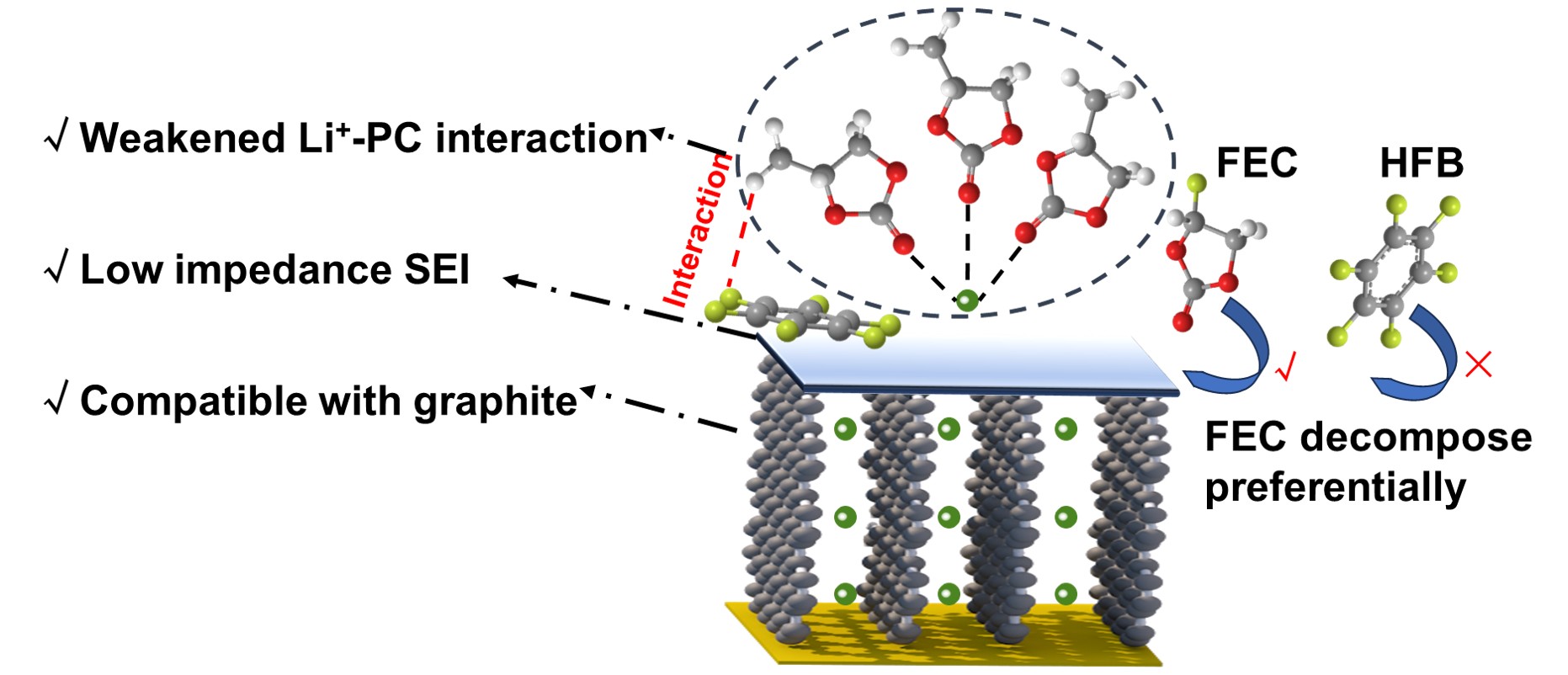《Synergistic Additives Design for High-Voltage and Broad-Temperature PC-Based Electrolytes in Practical Lithium-Ion Batteries》
Lithium-ion batteries (LIBs), widely used in electric vehicles (EVs) and other applications, are increasingly expected to deliver higher energy densities and stable performance over a wide temperature range, posing stringent challenges for advanced electrolyte design. However, achieving these properties remains challenging with currently commercialized ethylene carbonate (EC)-based electrolytes. Here, we report a propylene carbonate (PC)-based electrolyte system, employing hexafluorobenzene (HFB) and fluoroethylene carbonate (FEC) as synergistic additives. Specifically, HFB facilitates compatibility with graphite anodes through selective interfacial adsorption, while the decomposition of FEC stabilizes the solid electrolyte interphase (SEI), mitigating the formation of high-impedance interfaces. This tailored electrolyte exhibits superior ionic conductivity, excellent oxidative stability, and broad temperature tolerance. When validated at 4.5 V, high loading NCM811/graphite cells achieve nearly full capacity over 100 cycles at low temperatures (−20°C), with pouch cells retained 80% capacity after 470 cycles. These findings underscore the effectiveness of strategic additive engineering in advancing the development of PC-based electrolytes for practical LIBs.


 网站首页
>
正文
网站首页
>
正文